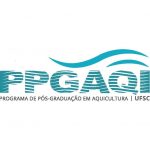Lines of Research
Reproduction and Larviculture
This line of research includes projects that aim to optimize the production of fish fingerlings, shrimp post-larvae and mollusk seeds, through the generation of sustainable technologies that can be adopted by commercial producers.
Production Technologies and Systems
This line of research encompasses projects that aim to develop and improve technologies for the production of aquatic organisms, including mollusks, marine shrimps, marine and freshwater fish and macroalgae. The studies developed in this line of research have served as a basis for the improvement of the productive system in aquaculture, and focus on breeding, larviculture, fattening, water quality, cropping systems and genetic improvement of aquatic organisms. Research in this area, developed by the Aquaculture Graduate Program at UFSC, provided the Brazilian market with aquatic organisms that were formerly derived exclusively from extractive fishing, such as shrimp, mussels and oysters.
Management and Conservation of Aquatic Ecosystems
Sustainable management and conservation of aquatic ecosystems are key to the genetic preservation of fisheries resources and to the environment as a whole. This line of research covers projects related to inland and marine waters. The projects are focused on the conservation of the Upper Uruguay River Basin, including the formation of an in vitro breeder bank, vital for the development of an improvement program, improving the zootechnical characteristics of aquatic organisms. In the marine environment, the projects focus on the use of molecular markers in the detection of pollutants that could compromise aquatic production.
Nutrition and Feeding
This line of research includes projects that aim to analyze the nutrients utilization in the diet of aquatic organisms, as well as to study alternative food management that provides for greater production of marine or freshwater fish. Through the knowledge of the nutritional requirements of each cultivated species, it is possible to formulate more efficient rations and, consequently, at a lower cost. The study of nutrition and feeding of aquatic organisms of aquaculture importance is also extremely relevant in maintaining low concentrations of nutrients in the effluents of aquaculture production systems, minimizing the environmental impact of the activity.
Health of Aquatic Organisms
The study of the diseases, their causes, and the mechanisms of prevention and defense of aquatic organisms is of great importance for the success of their cultivation. In addition, the setting of sanitary standards, which prevent the occurrence of diseases, is vital in aquaculture systems. These are the main objectives of the projects included in this line of research, which involve studies with marine and freshwater aquatic organisms. Research with aquatic organisms in this area is scarce at the national level, what gives great value to the studies conducted in the Aquaculture Graduate Program.







